Ethnic Nationalities (252 found)
Facing 377 Discrimination and Human Rights Abuses Against Transgender
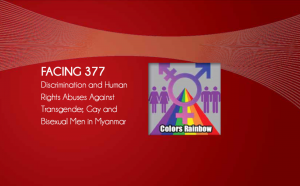 Following military coups in 1962 and 1988, multiple military regimes have ruled over Myanmar (formerly known as Burma). Widespread human rights abuses conducted by police and military against the general public and ethnic minorities are well known and documented […]
Following military coups in 1962 and 1988, multiple military regimes have ruled over Myanmar (formerly known as Burma). Widespread human rights abuses conducted by police and military against the general public and ethnic minorities are well known and documented […]
Practical steps the NLD-led government can take in its first six months to address human rights violations against the Rohingya
For decades successive regimes and governments in Burma have pursued a twin-track policy of impoverishment and human rights violations in order to attempt to wipe out the Rohingya community from Arakan State […]
• • •Sharing the Wealth: A Roadmap for Distributing Myanmar’s Natural Resource Revenues
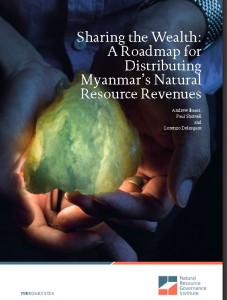 Oil, natural gas and mineral revenues are generated in nearly every state and region in Myanmar, with the most important onshore interests lying in Bago, Kachin, Magway, Mandalay, Sagaing, Shan and Tanintharyi. In these areas and others, extractive activities have significantly impacted livelihoods and the local environment […]
Oil, natural gas and mineral revenues are generated in nearly every state and region in Myanmar, with the most important onshore interests lying in Bago, Kachin, Magway, Mandalay, Sagaing, Shan and Tanintharyi. In these areas and others, extractive activities have significantly impacted livelihoods and the local environment […]
Protection of People Must be Priority in Burma’s Protracted Peace Process
In a new briefing paper titled, “Protection of People Must be Priority in Burma’s Protracted Peace Process” released to mark Union Day, Burma Partnership highlights how the peace process of the Thein Sein Government has been unsuccessful, ultimately leading to many powerful ethnic armed organizations (EAOs) refusing to sign the nationwide ceasefire agreement (NCA). It also resulted in a call by civil society organizations to postpone the Union Peace Conference […]
• • •Sticks and Stones: Hate Speech Narratives and Facilitators in Myanmar
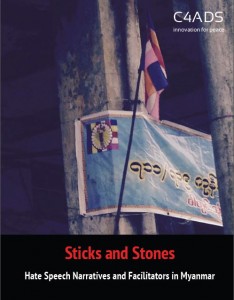 Conditions for Muslims have steadily declined in Myanmar, with the Rohingya Muslims of Rakhine State facing the gravest threat. In 2012, the country was rocked by the worst sectarian violence in over 50 years, resulting in over 200 killed and 140,000 displaced, most of them being the Rohingya […]
Conditions for Muslims have steadily declined in Myanmar, with the Rohingya Muslims of Rakhine State facing the gravest threat. In 2012, the country was rocked by the worst sectarian violence in over 50 years, resulting in over 200 killed and 140,000 displaced, most of them being the Rohingya […]
The Meaning of Land in Myanmar
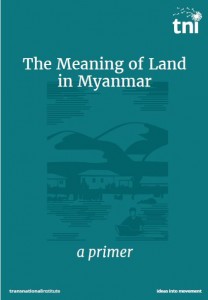 “Land is like our vein; it is vital for our living. After our land was confiscated, we don’t know what to do for our livelihood,” says a farmer from Kachin State in Myanmar […]
“Land is like our vein; it is vital for our living. After our land was confiscated, we don’t know what to do for our livelihood,” says a farmer from Kachin State in Myanmar […]
The Need for Peace and Inclusion
The peoples of Myanmar have long desired a platform for inclusive peace and dialogue where the vital issues of politics, economics, welfare and human rights for all can be discussed together, fully and in a spirit of national reconcilitation and cooperation. Thus any initiative towards peace and dialogue is always welcome […]
• • •UNFC on NCA and Internal Peace
Burma/Myanmar, after receiving independence on January 4, 1948 from the British colonialists in accordance with the Panlong Agreement, was accompanied by the civil war. Since the rulers of successive eras have tried to end the civil war, in disregard of the Panlong Agreement, they have not met with any success, up to this day, and people of all the nationalities have to continue to suffer the malicious caprices and dreadful consequences of war […]
• • •Justice Delayed, Justice Denied
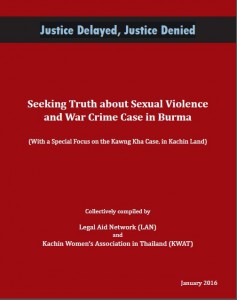 Despite the so-called democratic transition taking place since 2010, Burma remains constitutionally under the control of the Armed Forces. However, our national democratic icon, democratic forces, some ethnic armed organizations, many NGOs — especially GON¬GOs – and most of the international community are siding with or exercising a policy of appeasement with the power holders, without scrutinizing whether the source of their pow¬er emanates from the genuine will of the various ethnic nationalities and/or indigenous peoples […]
Despite the so-called democratic transition taking place since 2010, Burma remains constitutionally under the control of the Armed Forces. However, our national democratic icon, democratic forces, some ethnic armed organizations, many NGOs — especially GON¬GOs – and most of the international community are siding with or exercising a policy of appeasement with the power holders, without scrutinizing whether the source of their pow¬er emanates from the genuine will of the various ethnic nationalities and/or indigenous peoples […]
Government Troops Attack Ta’ang Village in Lashio, Killing two Villagers, one Mentally Disabled
On January 4, 2016, Burma’s Independence Day — celebrated with military parades in Naypyidaw and Yangon — government troops attacked a Ta’ang village in Lashio township, northern Shan State, killing two villagers, including one who was mentally disabled […]
• • •
 All posts
All posts